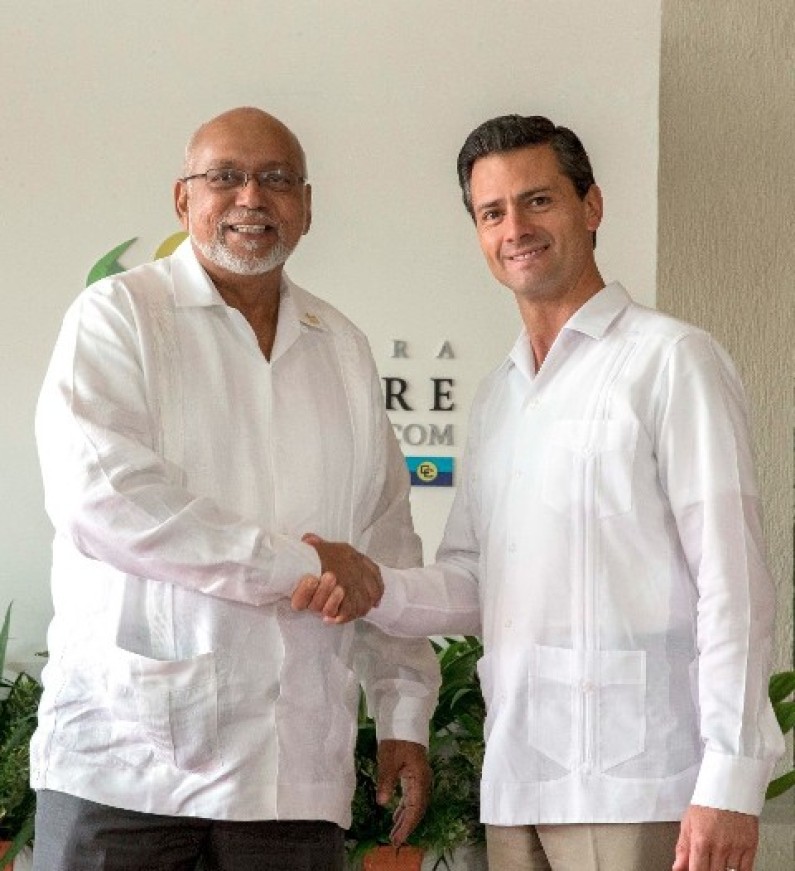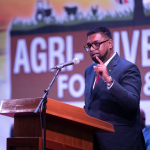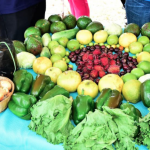
President Donald Ramotar, while attending the Third CARICOM-Mexico Summit which began on Tuesday, April 29, 2014 in Mérida, Yucatan, Mexico, highlighted the challenges which the region faces in the agricultural sector, pointing out that despite the many initiatives taken, the Caribbean was still be a net importer of food with the food bill amounting to more than US$4 Billion per year.
He said that it was clear that the region needed a joint agricultural policy through which members could complement each other and raise their production to reduce the vulnerability in the sector in the process, examining the many problems that have emerged and continue to emerge.
He reminded the leaders that it was the rise in food prices in Tunisia that had started the crisis which was unfortunately still raging in the Middle East.
Referring to the impact of climate change on agriculture, President Ramotar cited the local sugar sector as a practical example, explaining that since 2004 it was expected that there would be 120 days for land preparation for planting of sugar cane, “due to changing weather patterns, the average amount of days per year had been reduced to 80”.
He added that there was also need to have easy access to each other’s markets, but to accomplish this, it was necessary to improve the transportation links – maritime and air transport.
Another task was for the Community to jointly work to fight the huge food subsidy by developed countries, which results in dumping, thus keeping the countries in a state of dependency, President Ramotar said.
“Another challenge was that of making agriculture attractive for young people to become involved. The solution was to introduce more technology into the agriculture sector and for this it was necessary to invest in human resources to produce the modern farmer”.
The President added that countries of the community must also aim to transform their agricultural products from just being raw materials to agro- industries, “This is important to create jobs, both in agriculture and in industry where additional skills would be required and where value would be added”.
President Ramotar also posited that it was time that Caricom began to consider some form of division of labour in agriculture which would help to broaden the amount of agricultural products that the region could make available to its peoples.
President Ramotar, speaking on the theme of his Caricom portfolio responsibility, further welcomed an earlier announcement by the President of Mexico Enrique Peña Nieto, regarding his Government’s financial contribution to the Inter-American Institute for Cooperation in Agriculture for assistance to CARICOM States to support the improvement of the agricultural sector. (GINA)

















You must be logged in to post a comment Login